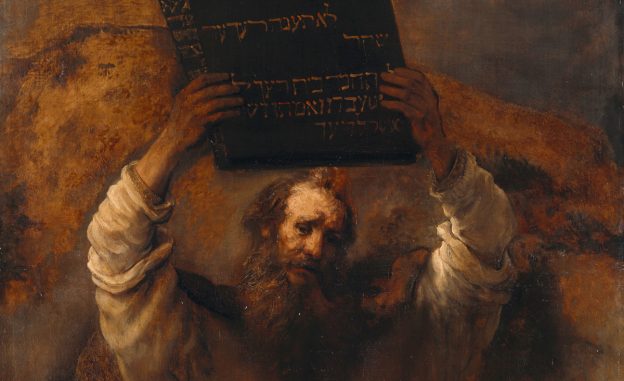Summary
I need a rest. For most of this year it feels like life on every front has been full of pressure, uncertainties, deadlines, and demands. Were it not for each Sunday, when I place aside the demands of work and chores (I cannot place aside the demands of my kids!) and focus on worshiping God, I would have collapsed in a heap. Sound familiar to many of you?
In the Fourth Commandment, the importance of rest and worship is highlighted. God positively reminds us to set aside work and to rest – instead focusing our time on the worship of God. We do so both because it reflects God’s creative pattern, but also because it reflects God’s redemption, when we finally enter into God’s eternal rest.
Our Passage Explained
The Fourth Commandment begins with the instruction to “remember the Sabbath day, to keep it holy” (v.8). The Israelites were to remember that God had instituted a day of rest, and a pattern of work and rest in their life. They already had some understanding of this through the teaching of Genesis (whether spoken or by now written), and in the pattern of God’s provision of manna.
The day of rest was not theirs alone though, but was set apart for God. They were commanded to keep it holy, not just for rest and relaxation but for divine service and worship. Thus, while all of their life was a time for worship, the Sabbath was a special particular day where they gathered together to worship God.
The Sabbath command importantly does not lower the importance of daily work; it just recognises its ordinariness. “Six days you shall labour, and do all your work” (v.9) indicates that there is not a higher calling of perpetual rest while minions do the drudge work, but the ordinary pattern of life includes six days in which we labour at our various duties.
On the other hand, “the seventh day is a Sabbath to the LORD your God” (v.10). It does not belong to us (though it was made for us, not us for the Sabbath – Mark 2:27) but to God. But it does release us from the work of every other day of the week, so we can rest and worship God.
This release extended not just to the heads of the household (the husband and wife), but to children, servants, animals, and even foreigners who were living amongst the religious community (v.10). Everyone, from the household head to the lowliest servant or the pack mule, was released from the obligation to work.
Non-citizens who came from other lands to live with the people under their protection and rule were also obliged to respect the God-given pattern of life; but also to benefit from it too. The Israelites could not transfer the burden of work onto non-believers (or religious seekers) while they went to services and rested from their labours.
The Israelites were to follow this pattern not just because God commanded it, but because it reflected God’s creative pattern. God created the world in six days and rested on the seventh (v.11; cf. Genesis 1-2). It is the basic pattern of Creation. God intended for Israel to follow his pattern, and to experience the blessing that comes with enjoying the Sabbath which God blessed and made holy in his creative act (v.11).
The other reason for the Sabbath rest was it pointed forward to the greater rest found in Jesus. God rescued Israel from slavery in Egypt, and gave them rest in him. God would soon send his promised, anointed Messiah to save all those who trusted God from their sins and to bring them into the eternal rest (Hebrews 4, Matthew 11:28).
The death and resurrection of Christ is the reason why for us, the Sabbath has moved from Saturday to Sunday (the first day of seven, aka the “eighth day”). We set aside the Lord’s day (Rev 1:10) for the public worship of God (Acts 20:7, 1 Cor. 16:2). By doing this, we signal we are entering by faith, in a partial but one day complete manner, the eternal rest of God.
Our Passage Applied
Like the other commandments before, the Fourth Commandment, though in a different time and context, still applies to us today. It reminds us of the importance of resting from our labours and trusting in God to provide. It reminds us of the importance of worshiping God, every day yes by our thoughts and acts but especially publicly one day in seven.
Rather than focusing on the negative of what it stops us doing, we should focus on the positive. The Sabbath was made for us, not us for the Sabbath. God gives us the Sabbath so we can set aside daily worries (as much as possible) and cast our burdens upon Christ.
We should worry less about exhaustive lists of inappropriate acts, and focus on the principle; resting from our daily grind of work and consumerism to rest in God and find delight and enjoyment in him and what he has given us.


